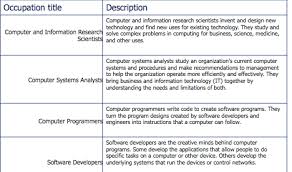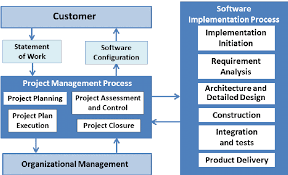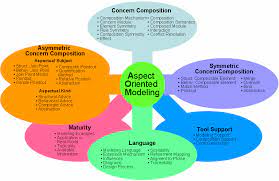Exploring the Stars: The Role of a NASA Software Engineer
The Role of a NASA Software Engineer
Working as a software engineer at NASA is a dream job for many tech enthusiasts. These professionals play a crucial role in developing software systems that drive the success of various space missions and projects undertaken by the National Aeronautics and Space Administration (NASA).
Responsibilities of a NASA Software Engineer
A NASA software engineer is responsible for designing, developing, testing, and maintaining software applications that are used in spacecraft, satellites, rovers, and other mission-critical systems. They work closely with scientists, engineers, and other team members to ensure that the software meets the highest standards of quality and reliability.
Key Skills Required
To excel in this role, a NASA software engineer needs to have a strong background in computer science, programming languages such as C++, Java, Python, and experience with real-time operating systems. Attention to detail, problem-solving skills, and the ability to work effectively in a team are also essential traits for success in this challenging yet rewarding career.
Challenges Faced
Developing software for space missions comes with its own set of challenges. Engineers must account for factors such as extreme temperatures, radiation exposure, communication delays, and limited resources when designing software that will operate in the harsh environment of space.
Career Opportunities
Becoming a NASA software engineer opens up exciting career opportunities not only within the agency but also in the aerospace industry as a whole. The experience gained from working on cutting-edge projects at NASA can pave the way for a successful career in various technology-driven fields.
Exploring the Role of a NASA Software Engineer: Responsibilities, Qualifications, and Challenges
- What does a NASA software engineer do?
- What qualifications are needed to become a NASA software engineer?
- How does a NASA software engineer contribute to space missions?
- What programming languages are commonly used by NASA software engineers?
- What challenges do NASA software engineers face in their work?
- Are there any specific certifications or training programs recommended for aspiring NASA software engineers?
What does a NASA software engineer do?
One frequently asked question about NASA software engineers is, “What does a NASA software engineer do?” A NASA software engineer plays a vital role in developing, testing, and maintaining software systems that are essential for the success of various space missions and projects conducted by the National Aeronautics and Space Administration (NASA). These professionals collaborate with scientists, engineers, and other team members to create high-quality and reliable software applications used in spacecraft, satellites, rovers, and other mission-critical systems. Their responsibilities include designing algorithms, ensuring system compatibility, addressing technical challenges unique to space environments, and contributing to the advancement of space exploration through innovative software solutions.
What qualifications are needed to become a NASA software engineer?
One of the most frequently asked questions regarding a career as a NASA software engineer is about the qualifications required for this role. To become a NASA software engineer, individuals typically need a strong educational background in computer science, software engineering, or a related field. A bachelor’s degree in a relevant discipline is often a minimum requirement, although many engineers hold advanced degrees such as master’s or Ph.D. qualifications. Additionally, having proficiency in programming languages like C++, Java, and Python, as well as experience with real-time operating systems, is essential for success in this challenging and rewarding position at NASA.
How does a NASA software engineer contribute to space missions?
A NASA software engineer plays a vital role in space missions by developing and maintaining the software systems that are essential for the success of these missions. They contribute by designing and programming software applications that control spacecraft, satellites, rovers, and other critical systems used in space exploration. These engineers ensure that the software functions reliably in the extreme conditions of space, taking into account factors like radiation exposure, temperature variations, communication delays, and limited resources. Their expertise is crucial in enabling the smooth operation of spacecraft and instruments, facilitating data collection, analysis, and communication back to Earth, ultimately advancing our understanding of the universe and pushing the boundaries of human exploration.
What programming languages are commonly used by NASA software engineers?
One frequently asked question regarding NASA software engineers is about the programming languages commonly used in their work. NASA software engineers often utilize a variety of programming languages to develop and maintain software systems for space missions. Some of the commonly used programming languages at NASA include C, C++, Java, Python, and Fortran. These languages are chosen for their reliability, efficiency, and suitability for developing robust and high-performance software that can withstand the challenges of space exploration.
What challenges do NASA software engineers face in their work?
NASA software engineers face a myriad of challenges in their work due to the unique and demanding nature of developing software for space missions. These professionals must navigate complexities such as extreme temperatures, radiation exposure, communication delays, and limited resources when designing software that can operate effectively in the harsh environment of space. Ensuring the reliability and functionality of software systems under such challenging conditions requires meticulous attention to detail, innovative problem-solving skills, and a deep understanding of both computer science principles and the intricacies of space technology. Despite these obstacles, NASA software engineers are dedicated to overcoming challenges to create robust and cutting-edge software solutions that drive the success of space exploration missions.
Are there any specific certifications or training programs recommended for aspiring NASA software engineers?
Aspiring NASA software engineers often wonder about specific certifications or training programs that can enhance their career prospects in the field. While NASA does not have strict certification requirements, obtaining certifications in relevant areas such as software development, computer science, or aerospace engineering can be beneficial. Additionally, participating in training programs that focus on real-time systems, space technology, and mission-critical software can provide valuable skills and knowledge needed for a successful career at NASA. Continuous learning and staying updated on the latest technologies are essential for aspiring NASA software engineers to excel in this competitive and dynamic field.












